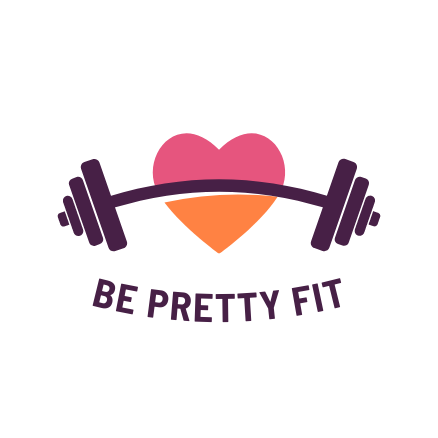Table of Contents
Introduction
As a personal trainer, I love that my clients want to work hard in the gym; however, I’ve found myself having a similar conversation with them.
Most people are under the illusion that muscle growth happens in the gym. So, what do they do? They train harder and longer.
But is this really the case?
It’s not as simple as that.
What you do outside of the gym is just as important, if not more important, than what you do in the gym. Rest and recovery have a significant effect on your body after a hard day of training.
Getting enough sleep is vital when it comes to muscle growth and performance. As a society, we treat sleep as our enemy, when really it can be our biggest ally.
How Does Sleep Affect Muscle Growth?
Sleep is our body’s way of repairing itself. When we sleep, our bodies do all of the necessary work to recover and build maximum strength.
During sleep, our bodies release different hormones to help us recover and build muscle. One of these hormones is the human growth hormone (HGH). HGH is naturally produced in our body’s pituitary gland, found near the brain’s base.
Although HGH is released throughout the day, most of it is released during sleep. HGH is vital in developing strength and growth within adults and managing our metabolisms by converting food into energy.
Without quality sleep, our bodies do not have the capability to produce enough HGH to build and grow muscle.
In a 2020 systematic review, researchers looked over 19 different studies investigating whether a good night’s sleep impacted athletes’ performance.
Out of the 19 studies reviewed, all of them found that longer durations of sleep had either a positive effect or a neutral effect on performance.
Researchers found that more sleep had a positive effect on performance when looking at the longer-term studies (at least one week).
Are 6 Hours Enough Sleep To Build Muscle?
I get this question from new clients, especially ones with families. We all want a little extra time during the day, and the first thing to go is usually sleep.
But is 6 hours of sleep really enough to build muscle?
The magic number lies somewhere between 7-9 hours of sleep per night.
In a 2010 study, researchers put a group of participants in two groups: one group slept 8.5 hours per night, and the other slept 5.5 hours. These two groups were also put on a caloric deficit diet.
The group who slept 8.5 hours per night lost 55% more fat but preserved 60% more muscle and slept 5.5. hours per night lost 55% less fat and lost 60% more muscle.
Although some people claim they are just as efficient on 6 hours of sleep than 8 hours, that doesn’t mean your body is doing what you want it to.
Getting at least 8 hours of sleep is vital to grow and maintain muscle that you’re working hard to build. Not only will lack of sleep keep some unwanted fat on you, but it will also hinder your ability to grow muscle.
Tips To Improve Your Quality Of Sleep
There are plenty of ways to improve your quality of sleep. Some of them are easier to do than others.
Below I’ll give you my top 3 tips that I give all of my clients.

These will help you fall asleep, stay asleep, won’t break the bank, and are relatively easy to do, meaning there’s no excuse not to do them!
1. Avoid caffeine after 12 pm.
Now, I know what you’re thinking, no coffee after 12 pm?! How am I supposed to make it through the second half of the day?!
Bear with me, though. Caffeine has a half-life of 5 hours. What that means is it takes 5 hours for half of the caffeine you ingested to leave your body. And that’s only the average!
So, if you find yourself having a 3 pm coffee every day to make it through the last few hours of the day, your body may just be eliminating half of that caffeine content by 8 pm.
Having that much caffeine in you will result in trouble falling asleep.
Instead, when you find yourself in that afternoon, lull, take a quick walk. A 2017 study found that just 10 minutes of stair walking was more beneficial than a cup of coffee for women experiencing insufficient sleep.
So, ditch the coffee and hit the stairs!
2. Have A Consistent Sleep Schedule
Everyone has a 24-hour clock called our Circadian Rhythm. This clock loves consistency. So, if you’re a person who goes to bed whenever and wakes up at a different time every day, you’ll probably have some issues with sleep.
Maintaining a consistent sleep and wake-up schedule is essential because it allows our bodies to find a good pattern of being asleep and being awake.
This even counts for the weekend. Find what works best for your schedule and stick to it for a week. I’m certain you’ll find yourself more rested.
3. Have A Relaxing Night-time Routine
We have stressful lives. Work, commutes, kids, training, there’s so much that goes on in our day and occasionally up until we go to bed. All this stress builds and can interfere with having a good night’s rest.
Having a relaxing nighttime routine will alleviate the day’s stress and let us fall into a deep sleep.
It all starts with turning off the devices: no more Twitter or Instagram. Turn off the TV and don’t watch the news after 8 pm.
Do something that relaxes you. Take a shower, read your favorite book, write in a journal. Anything where you can forget some of the stress of the day is going to help.
This doesn’t need to be a 2-hour routine, something as simple as 10 minutes of scheduling your day tomorrow can help.
This needs to be as consistent as your training for it to be effective. Start small and continue to build off of it.
Conclusion
Sleep is the foundation of training and muscle growth. Without it, you’re only hurting the results you could be getting.
Not sleeping isn’t a badge of honor. Some may find that it’s a waste of time, but if you’re looking to build muscle, your body needs the rest.
There are critical processes that happen while we sleep that allow our bodies to recover and rebuild. When you don’t get enough sleep, you’re not giving your body the opportunity.
Remember, always aim for 7-9 hours, and you’ll reap the rewards.

Nick, is a Certified Strength and Conditioning Specialist (CSCS) through the NSCA and a Pn L1 Nutrition Coach. He has over 10 years in the fitness world including training, coaching athletes, and working 1 on 1 with clients in the gym.

